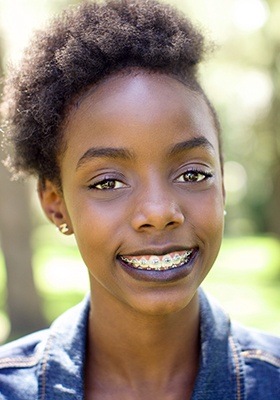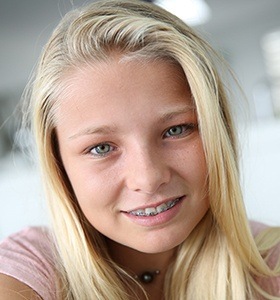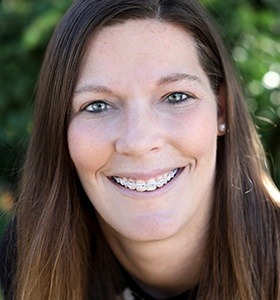
Dentofacial Orthopedics – Jacksonville, FL
Specialty Care You Can Trust
 Actual Patient
Actual PatientWhile orthodontics is focused on changing the position of the teeth in order to make them more functional, dentofacial orthopedics is designed to treat the bone structure that surrounds them, namely those in the face and jaw. This is a specialty within dentistry that Dr. Holland has undergone a lot of advanced training to provide, and with it, he can correct many issues that are beyond the reach of traditional orthodontics to improve a person’s oral function and overall appearance at the same time.
Why Choose Ortega Orthodontics for Dentofacial Orthopedics?
- Fourth-generation orthodontist born, raised, & educated in Jacksonville
- Dual board-certified in orthodontics & prosthodontics
- Kind, friendly, & highly-skilled team
Who Can Benefit From Dentofacial Orthopedics?

About 75% of the population actually has skeletal/facial concerns that could be corrected using dentofacial orthopedics. Ideally, this type of treatment is best applied at a young age when the bones of the face haven’t fully hardened yet. In fact, when timed right, dentofacial orthopedics can help children avoid the need for extensive orthodontic treatment and even surgery down the line. It’s also able to create a more symmetrical and balanced facial appearance in addition to giving the adult teeth the best chance to come in properly.
Dentofacial Orthopedics for Children

When used on younger patients, dentofacial orthopedics is able to ensure that a child’s jaws develop correctly. If one happens to be slower than the other, this could lead to problems like an overbite or underbite. An underdeveloped jaw can also cause the teeth to crowd and prevent the permanent teeth from coming in.
When you bring your child in for an orthodontic evaluation, ideally no later than the age of 7, Dr. Holland will determine if they could benefit from dentofacial orthopedics. This could consist of Phase I Pediatric Orthodontics, braces, and various orthodontic appliances working together to aid and guide the proper growth of the face.
Dentofacial Orthopedics for Adults

While dentofacial orthopedics is best used on children, many adults can still benefit from it as well, even though their bone structure has become fully set. It’s important to know that treatment for older patients is usually much more involved and may even call for orthognathic surgery. This kind of care can help fix all types of malocclusions (crooked bites) that are beyond the scope of braces or Invisalign. Many patients who are unhappy with their appearance because of an overbite or underbite have found a solution with dentofacial orthopedics, with the added benefit of being able to eat and speak more easily.